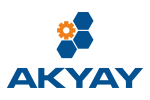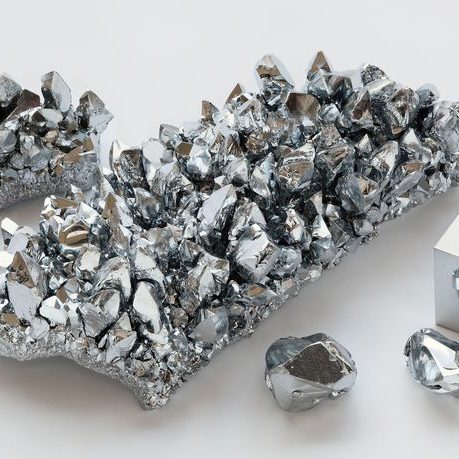Invar (NILO) 36
Invar (nilo) 36 is a low expansion nickel-iron alloy containing 36% Nickel. It has constant dimensions in the normal atmospheric temperature range and has a low coefficient of expansion from freezing temperatures of about 500 ° C (930 ° F).
A range of nickel-iron alloys are produced for controlled expansion and magnetic applications. The following are the most commonly used alloys.
INVAR / NILO 36
(UNS K93600 and K93601 / W, 1.3912).
It is a low expansion nickel iron alloy with 36% nickel. Its main areas of application include space composites, length standards, measuring tapes and measuring devices, precision parts and thermostat bars. It is also used as a low expansion component for bimetal strip, laser components in applications in freezing cold environments.
INVAR / NILO 42
(UNS K94100 / W, 1.3917)
It is a low expansion nickel-iron alloy containing 42% nickel. Invar / nilo 42 has a low and nominally constant coefficient of expansion in the range of 20-300 ° C (85-570 ° F). It is used for glass sealing applications in aviation composites, thermostat rods, semiconductor lead frames, thermostatic two metal strips and microelectronic components, vacuum devices and electric lamp bulbs.
INVAR / NILO 48
(UNS K94800 / W, 1.3922, 1.3926 and 1.3927).
It is a low expansion nickel-iron alloy containing 48% nickel. ). Its main use is the use of soft lead or soda lime type glasses for sealing glass to metal. It is also used for thermostats in industrial applications up to 450 ° C (840 ° F).
NILO K
(UNS K94610 / W, 1.3981)
It is a low expansion nickel-cobalt-iron alloy containing 29% nickel, 17% cobalt. Thermal expansion properties are suitable for borosilicate glasses and alumina type ceramics. It is produced according to a comprehensive range of chemicals and has reproducible properties, and this is particularly suitable for glass-to-metal seals in mass production applications. Nilo alloy The magnetic properties of the zinc vary mainly with the composition and the heat treatment applied. The composition of the alloy generally determines the optimum values of magnetic properties such as permeability, coercive power and hysteresis loss. The heat treatment introduced will change these properties between the worst and optimum levels. It is effective in changing the heat permeability and other properties. For example, when no phase change occurs, the force of force and residual induction will almost always decrease with increasing temperature. In addition, the hysteresis decreases as the temperature increases.
NILOMAG 77
Nilomag 77 is a soft magnetic alloy containing nickel-iron-copper-molybdenum. NILOMAG 77 has an extremely high level of permeability and is particularly useful in applications where power requirements are kept to a minimum. It is used in transformers, inductors, magnetic amplifiers, switching devices, magnetic shields, tape recording heads and memory storage devices.
INVAR / NILO alloys (36, 42, 48, K) can be hot or cold formed. It can be processed by similar methods to stainless steels. It can be easily welded using the correct welding material.
STANDARDS
NILO / INVAR 36
UNS K93600 and K93601, W.Nr. 1.3912
- ASTM B 388 & B 753, DIN 1715 (sheet and strip)
- SEW 385 (Sheet, strip and bar)
- AFNOR NF A54-301
NILO / INVAR 42
UNS K94100, W.Nr. 1.3917
- ASTM F 29 (Wire)
- ASTM F 30 (Sheet, strip, rod, rod, pipe and wire)
- ASTM B 753 (Sheet and strip)
- SEW 385 (Sheet, strip and bar)
- DIN 17745, AFNOR NF A54-301
NILO / INVAR 48
UNS K94800; w.nr. 1.3922, 1.3926, 1.3927
- ASTM F 30 (Sheet, strip, rod, rod, pipe and wire)
- DIN 17745, AFNOR NF A54-301 (Compound)
NILO K
UNS K94610, W.Nr. 1.3981
- ASTM F 15 (Rods, rods, sheets, strips, pipes, wires)
- ASTM F 29, SAE AMS 7726 (Wire) SAE AMS 7727 (Rods and pounding)
- SAE AMS 7728 (Sheet, strip and plate)
- DIN 17745, AFNOR NF A54-301



 Turkish
Turkish
